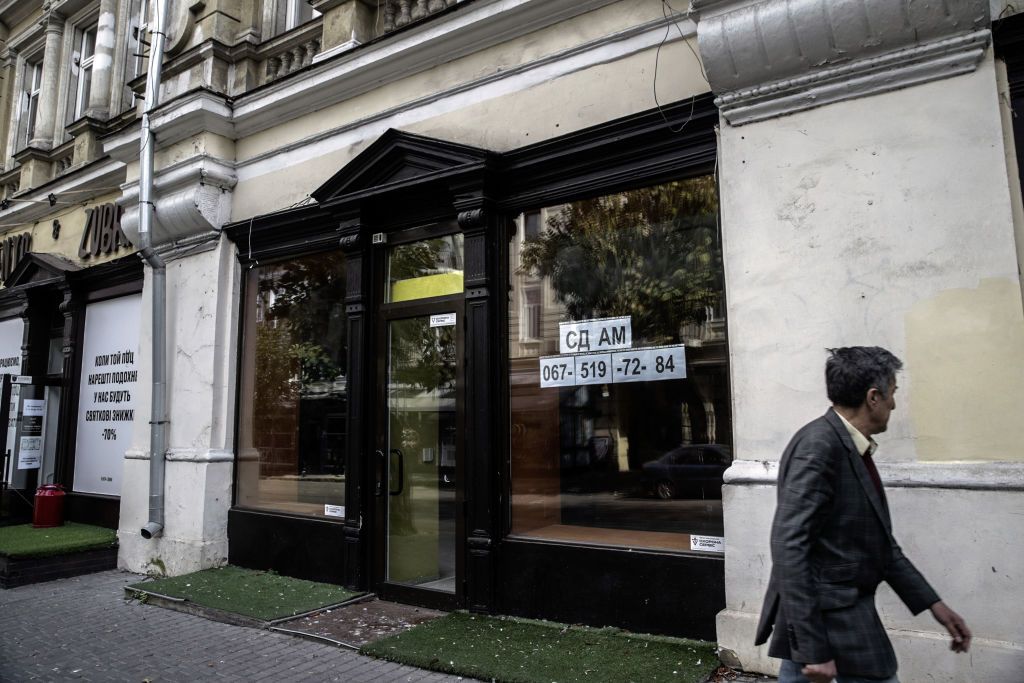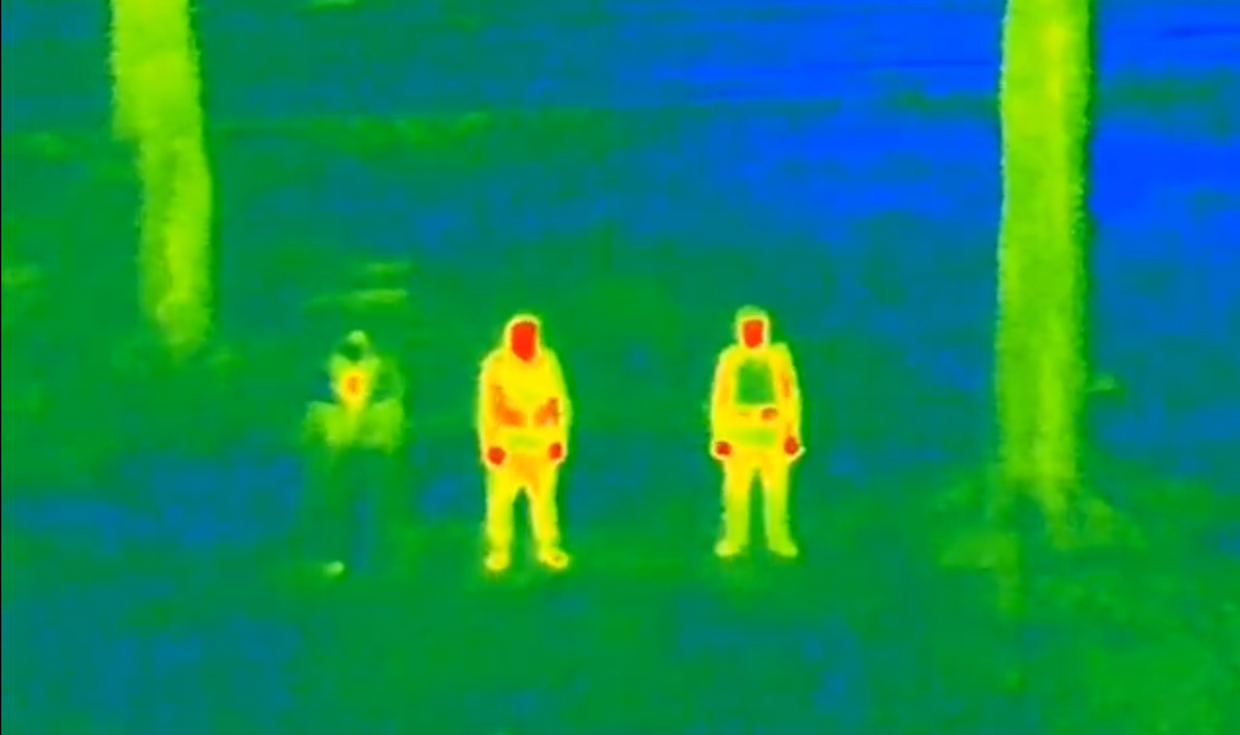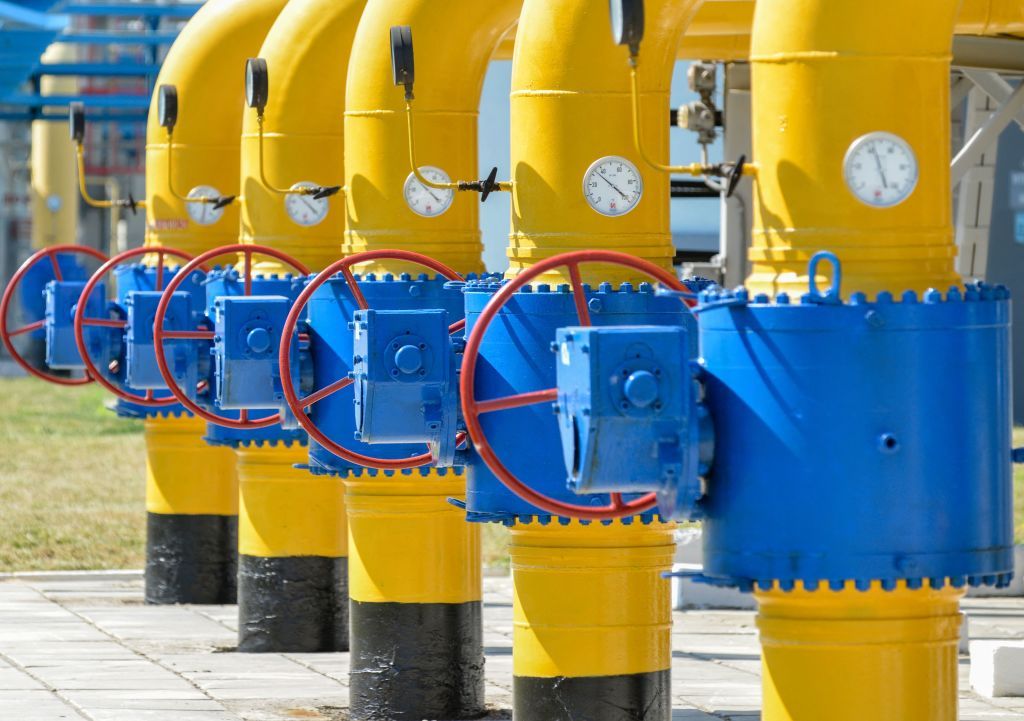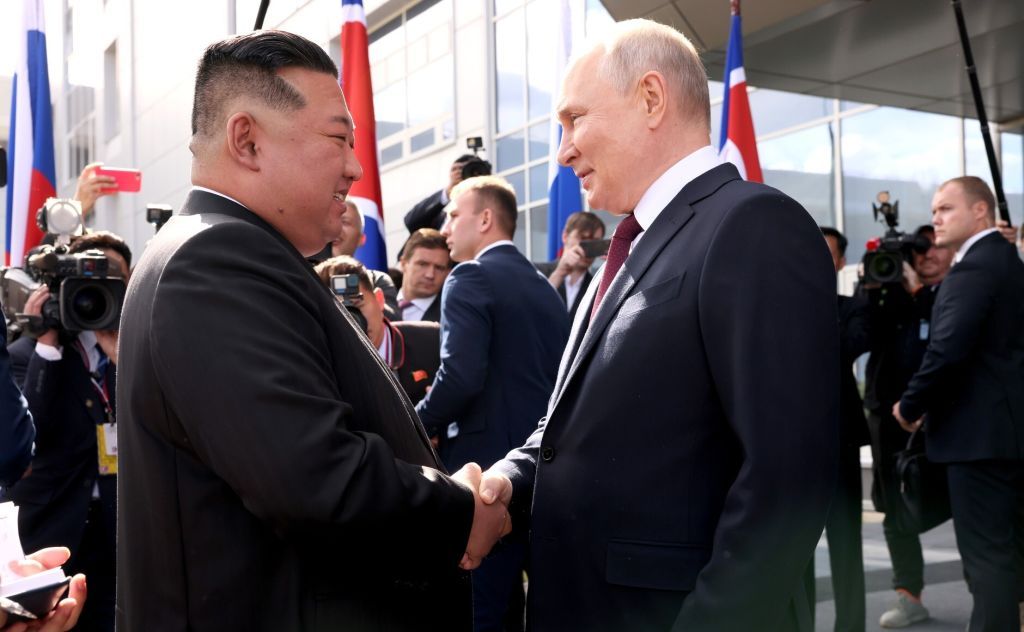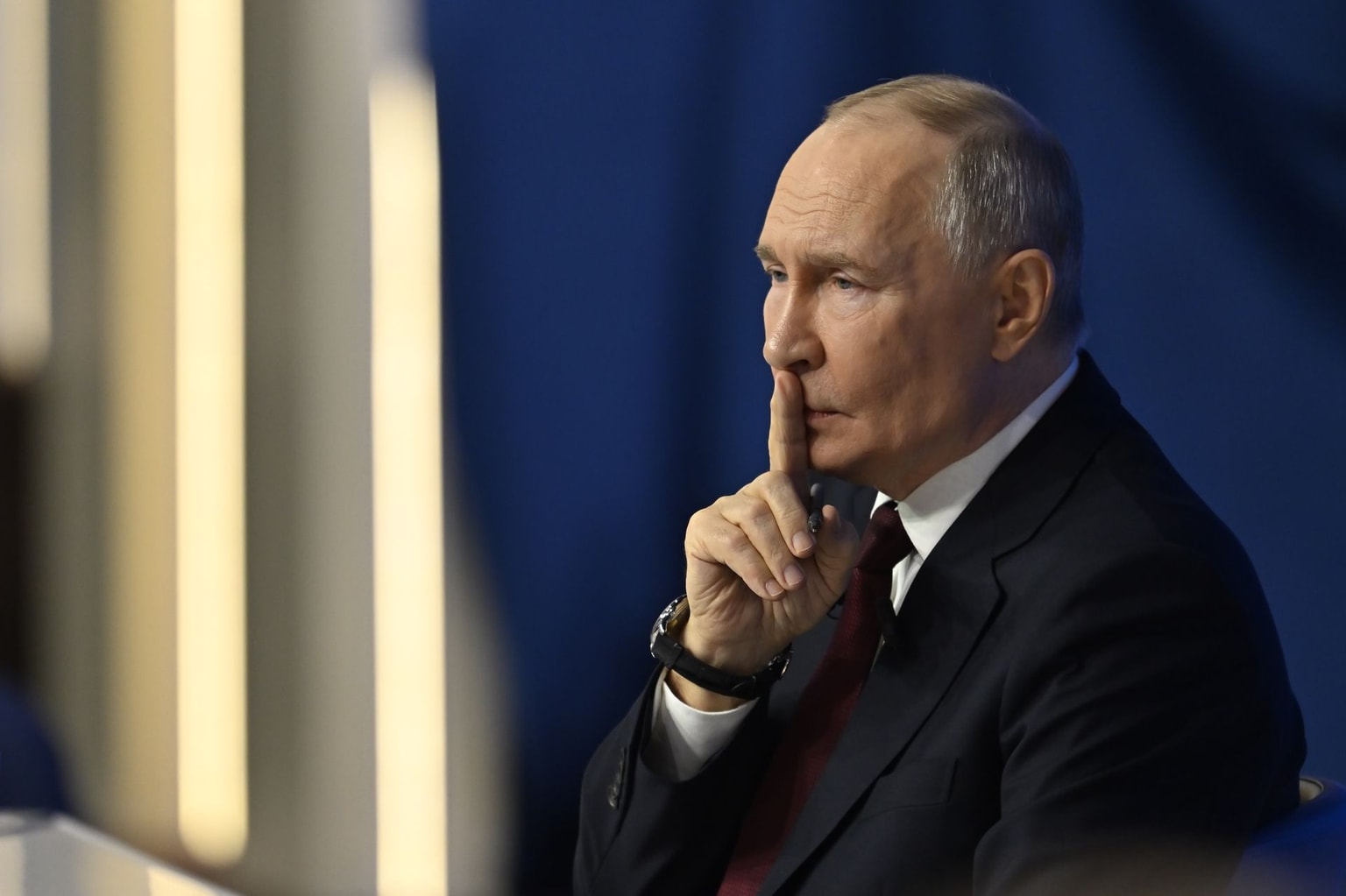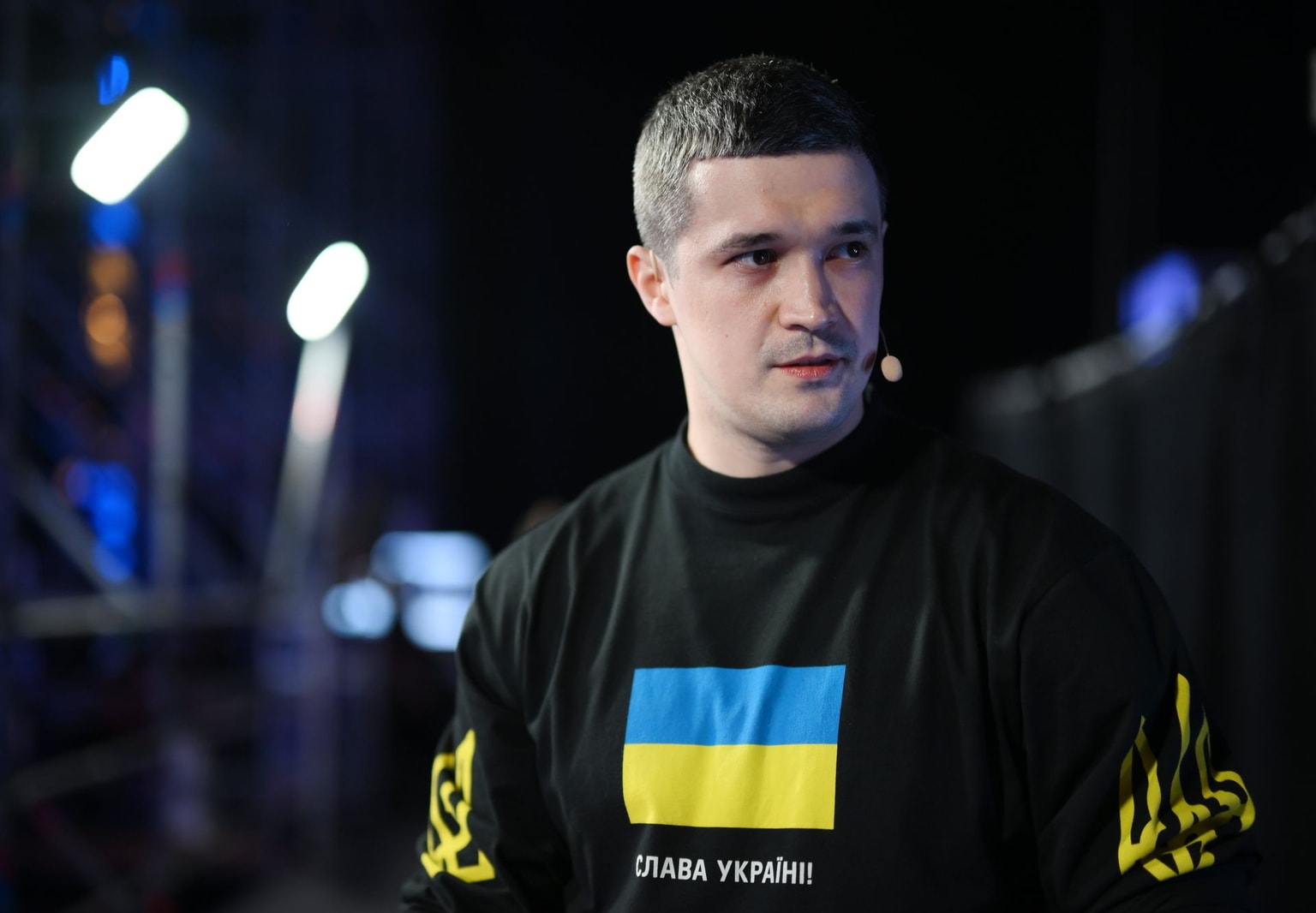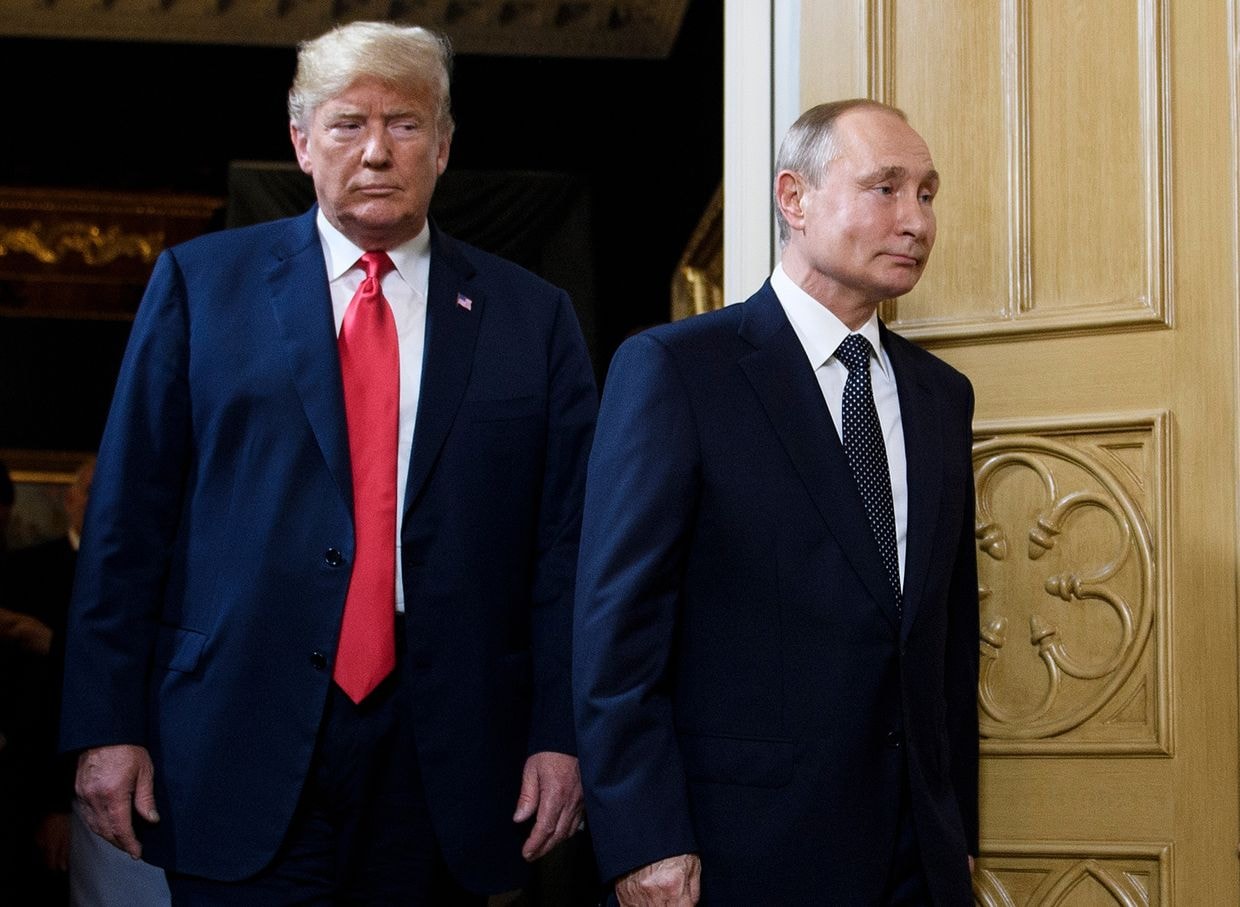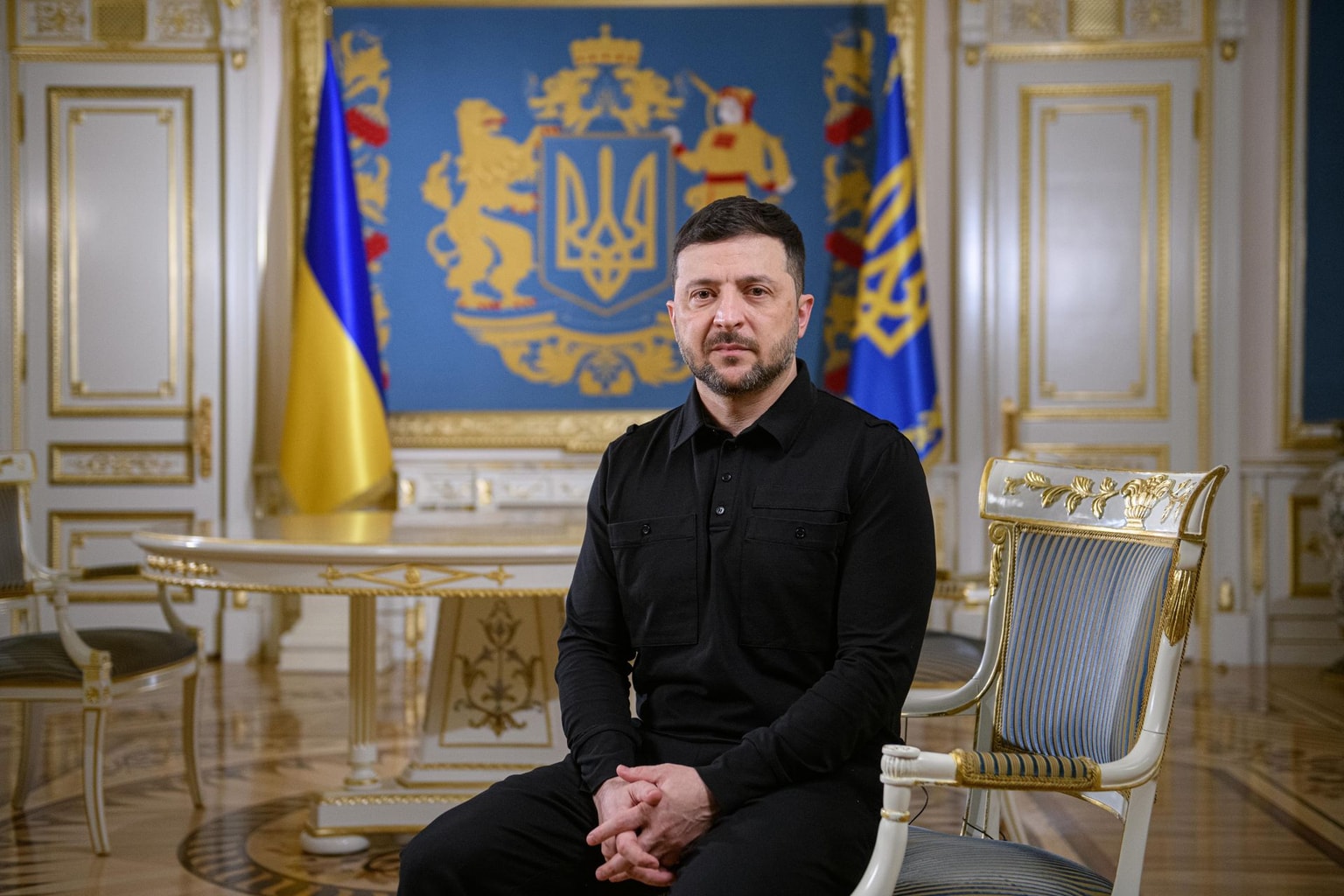Ukrainian State-Owned Enterprises Weekly — Issue 105

Editor’s Note: This is issue 105 of Ukrainian State-Owned Enterprises Weekly, covering events from Sept. 30 – Oct. 6, 2023. The Kyiv Independent is reposting it with permission.
Ukrainian SOE Weekly is an independent weekly digest based on a compilation of the most important news related to state-owned enterprises (SOEs) and state-owned banks in Ukraine. This publication was produced with the financial support of the European Union within the project “Supporting Ukraine in rebuilding and recovery” implemented by the KSE Institute. The contents of this publication are the sole responsibility of the editorial team of the Ukrainian SOE Weekly and do not necessarily reflect the views of the European Union.
Corporate governance of SOEs
SPFU changes management at UMCC. On Sept. 29, United Mining and Chemical Company (UMCC) said that the State Property Fund (SPFU) changed the company’s executive board, dismissing first deputy CEO Yaroslava Maksymenko and replacing her with Yegor Perelygin.
According to liga.net, Perelygin headed UMCC from August 2021 to April 2022. In March 2023, he returned to the company as a member of the executive board and has now been promoted to the top position. (It appears that Perelygin replaced Maksymenko as the acting CEO of UMCC.)
The last CEO, Vladislav Itkin, was dismissed in February 2023. (More about Itkin’s dismissal in our Issue 75.)
The executive board now also includes deputy CEO Dimitri Kalandadze, deputy security and audit director Valeriy Papenko, and former branch head Valeriy Zakharenko. Executive board member Olena Kaunova resigned along with Maksymenko.
SPFU told liga.net that Maksymenko’s dismissal was “a logical decision that has been long overdue.”
“Firstly, there are signs that she is controlled by certain groups of influence that have been at the company since the days of previous SPFU head Dmytro Sennychenko (who is now accused of stealing Hr 500 million ($13.7 million) from UMCC and Odesa Portside Plant). She also opposed the Fund’s decision to privatize UMCC and may have contributed to bringing the company to technical bankruptcy. Secondly, she created a corporate conflict within the company that paralyzed the normal operation of the enterprise," SPFU explained.
Liga.net also wrote that after Itkin’s dismissal in February 2023, the Cabinet of Ministers did not appoint a new CEO, so Maksymenko ranked highest. SPFU tried to bring in Dimitri Kalandadze as the new CEO in February 2023, possibly promoted by Davyd Arakhamia, head of the Sluha Narodu faction in parliament.
However, Kalandadze could not be appointed as the CEO of UMCC, because he has Georgian citizenship – by Ukrainian law, foreigners do not have the right to run SOEs, liga.net wrote. (Apparently, the media outlet is referring to legal restrictions envisaged by the Law of Ukraine “On Martial Law”.)
Kalandadze only became a member of the executive board, who could not sign off on certain important documents; Maksymenko signed them instead. Kalandadze’s job was to prepare UMCC for privatization, which Maksymenko opposes, liga.net explained.
According to the media, Maksymenko filed a statement reporting a crime to the SBU and NABU immediately after her dismissal.
In SOE Weekly Issue 33, we reported that the UMCC privatization auction was scheduled to take place on Aug. 31, 2021. Later, in SOE Weekly Issue 41, we reported that SPFU cancelled that privatization auction, which had only one qualified bidder.
The media outlet then published a list of participants allegedly interested in UMCC assets. Some of them said that the asset was not well prepared for privatization, and they did not consider the auction terms fair. Others claimed that the starting price was inadequate. It was reportedly impossible to estimate the company’s mineral deposits.
SPFU’s Auction Commission set Oct. 29, 2021 as the new auction date.
In Issue 49, we said that SPFU cancelled the Oct. 29 2021 auction as well. SPFU then explained that it only received two auction applications, one of which did not meet the requirements. SPFU’s Auction Commission then set a new auction date again, Dec. 20 2021.
As we reported in Issue 56, BDO Corporate Finance, SPFU’s adviser on the privatization of UMCC, said that international companies were not prepared to participate in the UMCC auction despite their interest in these assets. BDO said that this was because there were no warranties that would protect the prospective buyers’ investments. As of Dec. 14, 2021, the Cabinet of Ministers had not approved the privatization terms of the UMCC auction that would include such warranties.
In Issue 57, we reported that in late December 2021, SPFU postponed UMCC’s privatization auction for the third time. Just like in October 2021, SPFU said that it received two auction applications, one of which did not meet the requirements of the applicable law.
With only one qualified applicant for the auction, the attempt was declared invalid for the third time. Another attempt would be made in the future.
UMCC’s dismissed first deputy CEO Maksymenko interviewed. After her dismissal, Yaroslava Maksymenko was interviewed by liga.net. We selected the key points.
On her dismissal:
- “Fedoryshyn (Oleksandr Fedoryshyn is currently the acting head, and formerly the deputy head, of State Property Fund – SOE Weekly) said that the results of the third quarter were very poor, with salary and tax arrears, and there were some reports of internal problems in the company.”
On financial results of the company:
- “The company’s profit fell from Hr 414 million ($11.3 million) in 2021 to Hr 13 million ($356,000) in 2022. The year 2022 was perhaps the most challenging year in the company’s history. The full-scale invasion completely destroyed the production cycle.
Exports are 90% of our sales. We used to transport the goods to Odesa and sell them from the ports of Odesa and Izmail, and it used to take us three days to get there. Now, it takes two to three months to transport via the alternative routes.
Another important factor was that buyers doubted the company’s ability to fulfil its obligations. Both because of the war and because of rumours about our capacity.”
On Dimitri Kalandadze:
- “Kalandadze joined UMCC in February 2023. I was glad that an experienced person was joining the company. He was introduced to us as a future СEO. It turned out that I was legally acting as the CEO, but Kalandadze provided the strategic vision for development.”
- “The former head of SPFU, Rustem Umierov, officially appointed Kalandadze. Dimitri has done a lot of good for the company. He ensured that the company received a budgetary reimbursement and reservations for employees from being mobilized into the army. They had been taken away in whole teams, and at some point, our productivity dropped to 30%. But Fedoryshyn has always been our supervisor.”
On her reporting a crime to the SBU and NABU:
- “I wanted to draw attention to what was happening around the company. Because the company is under hidden external influence. This external influence, in my opinion, is linked to Group DF (a group of companies controlled by fugitive oligarch Dmytro Firtash – SOE Weekly), which is the main stakeholder in UMCC.
- It seems to me that Group DF is trying to destabilize the situation in the company and is taking some unclear representative actions in relation to UMCC. All this leads to UMCC being influenced by external factors that have no clear purpose. Someone goes to a government agency and calls himself a representative of UMCC. Then it turns out that it is a former manager of Group DF, Ilya Luponosov.”
- “My statement to law enforcement agencies is about external influence to devalue the company. To either sell it quickly and cheaply, so that no one could do anything, or to destroy it.”
SPFU launches a website that lists vacancies for senior positions at SOEs. On Sept. 29, 2023, the State Property Fund of Ukraine (SPFU) reported that it launched the automated system “SPFU Personnel Reserve” in test mode.
The site is meant to be a key tool to find professional candidates, providing up-to-date information on senior management openings at companies managed by the Fund. Candidates can apply electronically. SPFU hopes this will make asset management better, more efficient, and less corrupt.
According to the website, there are currently 75 vacancies for senior management positions at SOEs.
In SOE Weekly Issue 75, we reported SPFU’s announcement that it began dismissing SOE managers that appeared to lack integrity.
In Issue 79, we reported that SPFU planned to replace chief executives at 65 SOEs. The decision was based on an analysis of those enterprises’ financial indicators.
As we wrote in Issue 90 in May 2023, SPFU reported that since September 2022, it had replaced 89 CEOs and 53 supervisory board members at enterprises managed by the Fund. SPFU was awaiting appointment approvals at another 26 enterprises at that time.
Energy sector
Naftogaz obtains gas distribution licenses in six oblasts where Firtash’s regional gas companies used to operate. On Oct. 1, Gas Distribution Networks of Ukraine LLC (Gazmerezhi brand), a Naftogaz subsidiary, reported that its branches have received operating licenses from the National Energy and Utilities Regulatory Commission (NEURC).
According to Gazmerezhi, these are representative offices in Vinnytsia, Dnipropetrovsk, Ivano-Frankivsk, Mykolaiv, Sumy, and Khmelnytsky oblasts.
Currently, Gazmerezhi serves 6.6 million customers across the country through 14 branches, the company added.
In SOE Weekly Issue 71, we reported that Naftogaz changed the management of regional gas distribution companies Kharkivgaz and Dniprogaz on Jan. 16. These gas distribution companies were part of fugitive oligarch Dmytro Firtash’s Regional Gas Company (RGC) Group.
RGC accused Naftogaz of an “attempted raid." In response, Naftogaz referred to the Cabinet of Ministers’ Decision No. 429-r dated May 28, 2022, which transferred the corporate rights of about 20 regional gas distribution companies to its subsidiary Chornomornaftogaz.
Earlier in May 2022, Kyiv’s Pechersk Court seized shares of Firtash’s regional gas companies because they evaded payment for the use of gas networks. (After that, the Cabinet transferred these rights to Chornomornaftogaz.) RGC then filed lawsuits to overturn the Pechersk Court’s decision. This delayed the change of management of these distribution companies.
In September 2022, Naftogaz established a new subsidiary named Gas Distribution Networks of Ukraine LLC to consolidate the regional gas distribution companies.
In Issue 98, we reported on another wave of taking over Firtash’s gas distribution companies, Sumygaz, Vinnytsiagaz, and Dnipropetrovskgaz. They were also part of RGC Group. See more in Issue 98.
In Issue 100, we reported that Ivano-Frankivskgaz, Khmelnytskygaz, and Mykolaivgaz, which were also part of RGC Group, joined Naftogaz Group. See more in Issue 100.
As we reported in Issue 104, Naftogaz took over another one of Firtash’s gas distribution companies, Cherkasygaz.
Ukrenergo to be inspected over payments to solar power plants under occupation. On Oct. 4, the National Energy and Utilities Regulatory Commission (NEURC) reported that it will conduct an unscheduled on-site inspection of Ukrenergo.
The company may have provided unreliable commercial metering data for electricity produced by renewable energy generation facilities in the temporarily occupied territories of Zaporizhzhia and Kherson oblasts from Jan. 1 - Dec. 31, 2022, the NEURC explained.
The basis for the inspection is an appeal by Guaranteed Buyer that the certified commercial metering data, provided by Ukrenergo on the hourly volumes of electricity supply and consumption by each generating unit of the sellers from January to December 2022, did not indicate that some of the stations operated in asynchronous mode with the unified energy system of Ukraine. That data also specified that all generating units would supply all electricity only in the trade zone of the unified energy system, NEURC’s release reads.
Ukrenergo also did not provide certified commercial metering data indicating the synchronous/asynchronous mode of operation for that period, the NEURC added.
The regulator also said that the inspection would be carried out within the legal timeframe, and the results would be announced separately.
Earlier, in August 2023, Bihus.Info reported that solar power plants under Russian occupation, co-owned by the entourage of Deputy Head of the President’s Office Rostyslav Shurma, allegedly kept receiving payments under the green tariff until the summer of 2023, although they were probably not connected to Ukraine’s unified energy system.
Bihus.Info, in particular, reported about KD Energy 2 LLC and Renewable Energy Zaporizhzhia LLC, co-owned by Shurma’s brother, Oleh Shurma. The co-owner of another two companies – Green Energy Tokmak LLC and Grandpower LLC – is Ruslan Bozhko, who is Rostyslav Shurma’s former subordinate and is considered to be closely related to him, Bihus.Info said.
According to the media outlet, from July 2022 to July 2023, these companies collectively received more than Hr 320 million ($8.7 million) in payments for electricity at the green tariff from the Guaranteed Buyer.
Guaranteed Buyer then explained that it had paid the money based on Ukrenergo’s data.
Later, Ukrenergo said that Ukraine does not pay owners of solar power plants in the occupied territories.
In September 2023, Shurma confirmed that his brother received payments from the Guaranteed Buyer for electricity from solar power plants located in the occupied territories. “He received it in exactly the same way as all the other companies in the area did," Shurma said.
At the same time, he stated that the investigation into the occupied solar power plants owned by his brother “was very manipulative and untrue” and that this is “a certain personal price that has to be paid for the return of large assets to the state," Shurma also claimed that Ukrainian tycoon Ihor Kolomoisky commissioned Bihus.Info to conduct this investigation. Bihus.Info flatly denied this allegation.
According to Ekonomichna Pravda (EP), on Aug. 21, the National Anti-Corruption Bureau (NABU) opened a criminal investigation into payments for electricity from solar power plants located in the occupied territories.
EP also wrote that the Security Service of Ukraine (SBU) saw no signs of collaborationism in the actions of officials of companies associated with Shurma.
Lawmaker Yaroslav Zheleznyak (Holos faction) reported that the National Agency of Corruption Prevention (NAPC) is investigating whether Shurma had a conflict of interest in the exercise of his official powers.
As we wrote in SOE Weekly Issue 103, Ukrenergo reported that the Prosecutor General’s Office (PGO) searched its head office by order of the Pechersk District Court issued on Aug. 30. See more detail on this case in Issue 103.
Defense
Antonov signs an agreement with a French company to produce the Aarok MALE combat drone. On Oct. 2, La Tribune reported that Antonov and the French company Turgis & Gaillard signed a deal on the production of the Aarok MALE (Medium Altitude Long Range) version of the combat drone at Antonov’s facilities.
The agreement on drone production was signed on Sept. 28 during a visit to Kyiv by French Armed Forces Minister Sebastien Lecornu.
According to La Tribune, the future drone would be intended only for the Armed Forces of Ukraine. According to preliminary plans, it should take off in Ukraine in 2024, and the production of this drone would be localized in Ukraine.
The Aarok MALE drone in the Reaper category (5.5 metric tons) was presented at the Paris Air Show in June 2023, La Tribune added. Aarok has a maximum speed of 463 kilometers per hour, can fly for 30 hours, and does not need a runway.
The drone performs surveillance and reconnaissance missions using high-performance optoelectronic and electromagnetic sensors. It can carry a large payload of weapons and countermeasures for direct air support, strike coordination, reconnaissance, and suppression of enemy air defenses. Aarok can also be integrated into anti-submarine warfare and search and rescue operations, liga.net added.
According to Defence Express, a smaller and cheaper version of this drone, with limited specifications, will be produced for Ukraine.
Privatization
Privatization yields $70 million in the first nine months, less than a half of the 2023 plan. On Sept. 29, SPFU reported that in January-September 2023, the state budget received Hr 2.7 billion (around $70 million) from privatization.
In SOE Weekly’s Issue 96, we reported that SPFU raised Hr 1.82 billion (around $47 million), from privatization auctions in the first half of 2023. This suggests that privatization yielded about Hr 900 million, or around $23 million, in the third quarter.
The 2023 annual revenue from privatization to the state budget was projected to be Hr 6 billion, or around $156 million. This amount would represent 0.45% – that is, less than half per cent – of the total state budget revenues planned for 2023.
The privatization proceeds in the first nine months, Hr 2.7 billion ($74 million), are responsible for 0.2% of the total budget revenues planned for 2023.
According to SPFU, the revenue of the first nine months of 2023 is a record figure since 2018. Since the beginning of 2023, SPFU has found new owners for 303 state assets. The most expensive, the Hermitage Hotel in Kyiv, was sold for Hr 311 million ($8.5 million), SPFU added.
Note that these revenues are all from small-scale privatization. No large-scale privatization auctions have taken place in that period.
SPFU also reported that the lease of state property in the first nine months of 2023 brought Hr 572 million ($15.6 million) to the state budget, almost 80% of the annual lease revenue plan.
In total, SPFU supervizes more than 14,000 lease contracts, and the area of leased real estate is almost 8 million square meters, which makes SPFU the largest landlord in Ukraine.


